- because of the many antioxidants
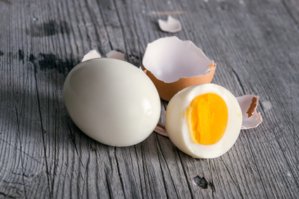 A new Chinese study that is published in the science journal, Heart, shows that eating an egg every day can lower your risk of stroke by 26 percent. The reason is that eggs contain selenium and other powerful antioxidants that protect against atherosclerosis, and we do not get all that much selenium from our diets. Therefore, forget all about the cholesterol scare and warnings against eating eggs. That dietary advice is outdated and has done more harm than good.
A new Chinese study that is published in the science journal, Heart, shows that eating an egg every day can lower your risk of stroke by 26 percent. The reason is that eggs contain selenium and other powerful antioxidants that protect against atherosclerosis, and we do not get all that much selenium from our diets. Therefore, forget all about the cholesterol scare and warnings against eating eggs. That dietary advice is outdated and has done more harm than good.
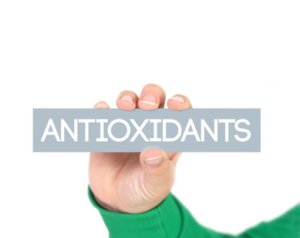 It is widely established that women of childbearing age have high levels of estrogen that protect them against cardiovascular disease. However, if they have type 1 diabetes, having high estrogen levels actually increases their risk of these diseases. A group of scientists is therefore planning to investigate whether nutritional supplements with antioxidants can protect diabetics against cardiovascular disease and the premature death caused by these ailments.
It is widely established that women of childbearing age have high levels of estrogen that protect them against cardiovascular disease. However, if they have type 1 diabetes, having high estrogen levels actually increases their risk of these diseases. A group of scientists is therefore planning to investigate whether nutritional supplements with antioxidants can protect diabetics against cardiovascular disease and the premature death caused by these ailments.
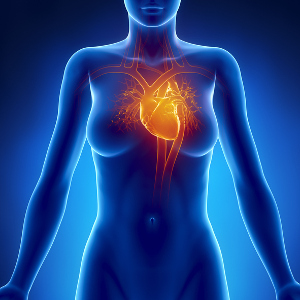 There is a clear link between magnesium intake and the risk of heart diseases and sudden cardiac death in postmenopausal women, according to a study that is published in Journal of Women’s Health. Unfortunately, many women are not diagnosed with heart disease at a sufficiently early stage. It is also a fact that many postmenopausal women take calcium supplements for bone health. However, if they also lack magnesium, which is responsible for the calcium distribution in the body, the calcium supplements may instead increase the risk of coronary atherosclerosis. According to new and earlier research, we must focus a lot more on telling women how important it is to get enough magnesium at all stages of life – not least after menopause.
There is a clear link between magnesium intake and the risk of heart diseases and sudden cardiac death in postmenopausal women, according to a study that is published in Journal of Women’s Health. Unfortunately, many women are not diagnosed with heart disease at a sufficiently early stage. It is also a fact that many postmenopausal women take calcium supplements for bone health. However, if they also lack magnesium, which is responsible for the calcium distribution in the body, the calcium supplements may instead increase the risk of coronary atherosclerosis. According to new and earlier research, we must focus a lot more on telling women how important it is to get enough magnesium at all stages of life – not least after menopause.
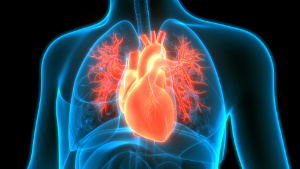 Seniors have an increased risk of cardiovascular disease, which is the leading cause of death. It is commonly known that diet plays a key role in preventing these diseases, and a team of scientists therefore decided to look closer at zinc because of this nutrient’s many functions in the heart and cardiovascular system. The scientists found that older people often lack zinc for different reasons. Therefore, the dietary guidelines for zinc in old age should be reconsidered with regard to cardiovascular health and other zinc-dependent functions.
Seniors have an increased risk of cardiovascular disease, which is the leading cause of death. It is commonly known that diet plays a key role in preventing these diseases, and a team of scientists therefore decided to look closer at zinc because of this nutrient’s many functions in the heart and cardiovascular system. The scientists found that older people often lack zinc for different reasons. Therefore, the dietary guidelines for zinc in old age should be reconsidered with regard to cardiovascular health and other zinc-dependent functions.
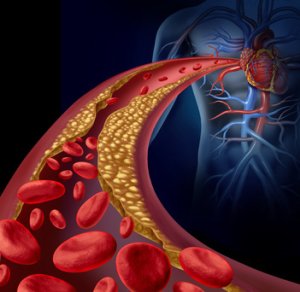 Atherosclerosis is one of the leading causes of death in the Western world, and the heart is particularly vulnerable. According to a study from the University of Birmingham, Alabama (USA), foods that are rich in potassium such as bananas, potatoes, avocado, and almonds protect against this disease, which takes years to develop. Beware that too much salt and the use of diuretics may deplete the body’s potassium stores.
Atherosclerosis is one of the leading causes of death in the Western world, and the heart is particularly vulnerable. According to a study from the University of Birmingham, Alabama (USA), foods that are rich in potassium such as bananas, potatoes, avocado, and almonds protect against this disease, which takes years to develop. Beware that too much salt and the use of diuretics may deplete the body’s potassium stores.
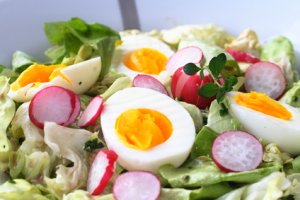 A new study shows that adding eggs to your mixed salad increases the uptake of vitamin E from the vegetables, so don’t let your fear of fat and cholesterol keep you from consuming eggs. Eggs (yoke and white) contain a multitude of nutrients that are beneficial for your cardiovascular system and blood sugar.
A new study shows that adding eggs to your mixed salad increases the uptake of vitamin E from the vegetables, so don’t let your fear of fat and cholesterol keep you from consuming eggs. Eggs (yoke and white) contain a multitude of nutrients that are beneficial for your cardiovascular system and blood sugar.
There are good and solid evidence for the health benefits of omega-3 fatty acids. More recently, a new scientific study from Norway published in the Journal of Nutrition shows that supplementation with fish oil either equals or was better than eating fish regarding a reduction of venous thrombosis. The combination of fish and fish oil supplements can reduce the risk of venous thrombosis by almost 50%.
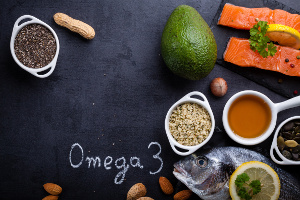 Heart failure is a disease with a variety of different symptoms and a high mortality rate because the heart’s pumping function is impaired. Heart failure is also characterized by chronic inflammation that worsens the prognosis. Apparently, fish oil supplementation can reduce chronic inflammation, according to a meta-analysis that is published in Heart Failure Reviews. In fact, eating more omega-3 fatty acids from fish and different plant sources can improve survival in heart failure.
Heart failure is a disease with a variety of different symptoms and a high mortality rate because the heart’s pumping function is impaired. Heart failure is also characterized by chronic inflammation that worsens the prognosis. Apparently, fish oil supplementation can reduce chronic inflammation, according to a meta-analysis that is published in Heart Failure Reviews. In fact, eating more omega-3 fatty acids from fish and different plant sources can improve survival in heart failure.
- but only few preparations work
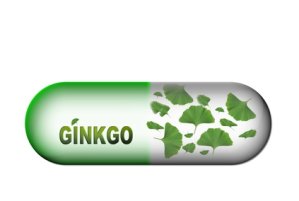 The plant extract Ginkgo biloba contains some biologically active compounds that improve circulation through blood-thinning and vessel-dilating actions. However, a study of 29 different Ginkgo biloba preparations revealed that only 10% of the investigated products actually contained Ginkgo extract. You can avoid this problem by only using Ginkgo biloba in the form of natural remedies, because they are registered as pharmaceutical drugs.
The plant extract Ginkgo biloba contains some biologically active compounds that improve circulation through blood-thinning and vessel-dilating actions. However, a study of 29 different Ginkgo biloba preparations revealed that only 10% of the investigated products actually contained Ginkgo extract. You can avoid this problem by only using Ginkgo biloba in the form of natural remedies, because they are registered as pharmaceutical drugs.
- in people aged 60 and older
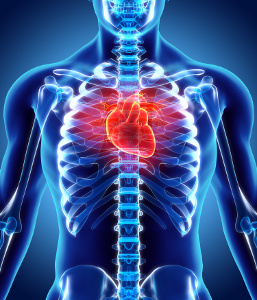 Cardiovascular disease is the leading cause of death worldwide, and our diet and lifestyle play a major role. According to an Australian study published in British Medical Journal, high-dosed vitamin D supplementation taken for several years lowers the risk of heart attacks or interventions such as angioplasty and by-pass surgery in people aged 60 years and older.
Cardiovascular disease is the leading cause of death worldwide, and our diet and lifestyle play a major role. According to an Australian study published in British Medical Journal, high-dosed vitamin D supplementation taken for several years lowers the risk of heart attacks or interventions such as angioplasty and by-pass surgery in people aged 60 years and older.
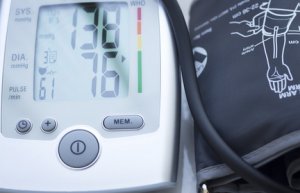 There is widespread potassium deficiency, and it is common knowledge that an increased potassium intake lowers the risk of hypertension, which is the leading cause of stroke, cardiovascular disease, and early death. However, not many people know that potassium has a vital impact on blood sugar levels and the prevention of diabetes, just as it counteracts side effects of diuretics. The question is how much potassium do we need – and how does the balance between potassium and sodium (salt) affect our health?
There is widespread potassium deficiency, and it is common knowledge that an increased potassium intake lowers the risk of hypertension, which is the leading cause of stroke, cardiovascular disease, and early death. However, not many people know that potassium has a vital impact on blood sugar levels and the prevention of diabetes, just as it counteracts side effects of diuretics. The question is how much potassium do we need – and how does the balance between potassium and sodium (salt) affect our health?
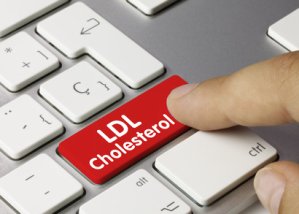 Medical science has claimed for decades that elevated cholesterol levels pose a health threat, especially if you have too much of the so-called “bad” cholesterol – or LDL (Low-Density Lipoprotein). However, a team of international experts is now arguing that this theory is exaggerated. In fact, the experts specifically advise against taking cholesterol-lowering statins. Meanwhile, science is focused on how to improve the safety of statins by combining them with supplements of coenzyme Q10.
Medical science has claimed for decades that elevated cholesterol levels pose a health threat, especially if you have too much of the so-called “bad” cholesterol – or LDL (Low-Density Lipoprotein). However, a team of international experts is now arguing that this theory is exaggerated. In fact, the experts specifically advise against taking cholesterol-lowering statins. Meanwhile, science is focused on how to improve the safety of statins by combining them with supplements of coenzyme Q10.
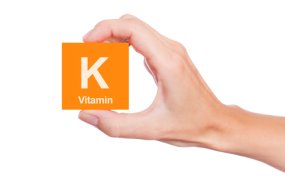 Vitamin K is primarily for its role in helping blood coagulate. Otherwise, the vitamin is heavily underrated. For instance, the bones depend on vitamin K, and those people who consume the greatest amounts of vitamin K have the lowest risk of cardiovascular disease, atherosclerosis, and blood clots. It is important to know the difference between vitamin K1 and K2 and to know how well they get absorbed in the body.
Vitamin K is primarily for its role in helping blood coagulate. Otherwise, the vitamin is heavily underrated. For instance, the bones depend on vitamin K, and those people who consume the greatest amounts of vitamin K have the lowest risk of cardiovascular disease, atherosclerosis, and blood clots. It is important to know the difference between vitamin K1 and K2 and to know how well they get absorbed in the body.
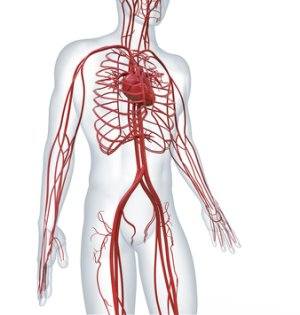 In a matter of four months only, large doses of vitamin D were able to reduce arterial stiffness in young, overweight but otherwise healthy Afro-Americans, according to a study from Georgia, the United States. The study also showed that those participants, who only took the officially recommended quantities of vitamin D, had increased arterial stiffness. This suggests that the official vitamin D recommendations are too low to prevent stiff arteries and atherosclerosis. Another thing is that dark-skinned people living at northern latitudes, overweight individuals, older people diabetics, and those who overuse sun screen are at increased risk of synthesizing too little vitamin D.
In a matter of four months only, large doses of vitamin D were able to reduce arterial stiffness in young, overweight but otherwise healthy Afro-Americans, according to a study from Georgia, the United States. The study also showed that those participants, who only took the officially recommended quantities of vitamin D, had increased arterial stiffness. This suggests that the official vitamin D recommendations are too low to prevent stiff arteries and atherosclerosis. Another thing is that dark-skinned people living at northern latitudes, overweight individuals, older people diabetics, and those who overuse sun screen are at increased risk of synthesizing too little vitamin D.
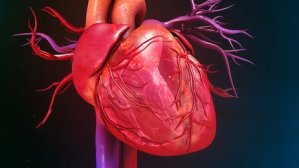 It is essential that your heart is able to pump optimally throughout life. A study from Medical College of Georgia, Augusta University, the United States, has just shown that a diet with low levels of vitamin K1 from dark, leafy greens increases your risk of an unhealthy enlargement of the heart’s left ventricle that pumps the oxygenated blood to the aorta (the body’s largest artery). The scientists even observed this enlargement in teenagers. Vitamin K1 is primarily known for its role in the blood coagulation process, but it is also converted to vitamin K2 in our gut flora. In fact, it is vitamin K2 that is important for the heart and cardiovascular system.
It is essential that your heart is able to pump optimally throughout life. A study from Medical College of Georgia, Augusta University, the United States, has just shown that a diet with low levels of vitamin K1 from dark, leafy greens increases your risk of an unhealthy enlargement of the heart’s left ventricle that pumps the oxygenated blood to the aorta (the body’s largest artery). The scientists even observed this enlargement in teenagers. Vitamin K1 is primarily known for its role in the blood coagulation process, but it is also converted to vitamin K2 in our gut flora. In fact, it is vitamin K2 that is important for the heart and cardiovascular system.
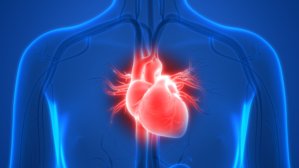 Heart failure is when the heart loses power and is no longer able to deliver blood to the different parts of the body. Typical symptoms are shortness of breath and physical exhaustion. There may also be symptoms like fluid retention, persistent coughing, chest tightness, increased sweating, or cold sensitivity. Chronic heart failure may be caused by different things, and it is a life-threatening condition. However, according to a study that is published in Journal of Clinical Investigation, magnesium supplementation can improve a type of heart failure called diastolic dysfunction. Previous studies have demonstrated that supplements of Q10 can also improve cardiac function in patients with heart failure.
Heart failure is when the heart loses power and is no longer able to deliver blood to the different parts of the body. Typical symptoms are shortness of breath and physical exhaustion. There may also be symptoms like fluid retention, persistent coughing, chest tightness, increased sweating, or cold sensitivity. Chronic heart failure may be caused by different things, and it is a life-threatening condition. However, according to a study that is published in Journal of Clinical Investigation, magnesium supplementation can improve a type of heart failure called diastolic dysfunction. Previous studies have demonstrated that supplements of Q10 can also improve cardiac function in patients with heart failure.
 The Danish cardiologist and researcher, Chief Physician Svend Aage Mortensen,from the Copenhagen Heart Centre at Rigshospitalet, is very optimistic about a new type of therapy for chronic heart failure where a natural compound is used to increase energy levels in the heart muscle.
The Danish cardiologist and researcher, Chief Physician Svend Aage Mortensen,from the Copenhagen Heart Centre at Rigshospitalet, is very optimistic about a new type of therapy for chronic heart failure where a natural compound is used to increase energy levels in the heart muscle.
– but focus on sodium if you have high blood pressure
 Salt is a flavor enhancer, and the good news is that salt is not as harmful as previously thought. In fact, salt is essential when consumed in the right quantities, and for most people, it poses no health risk to consume up to five grams – or two and half teaspoons – of salt daily, according to a study that is published in the Lancet. Many people on anti-hypertensive drugs are advised to cut back on their salt intake, but it takes more than that. In fact, it is potassium that controls how much salt the kidneys excrete.
Salt is a flavor enhancer, and the good news is that salt is not as harmful as previously thought. In fact, salt is essential when consumed in the right quantities, and for most people, it poses no health risk to consume up to five grams – or two and half teaspoons – of salt daily, according to a study that is published in the Lancet. Many people on anti-hypertensive drugs are advised to cut back on their salt intake, but it takes more than that. In fact, it is potassium that controls how much salt the kidneys excrete.
 Eat plenty of oily fish from clean oceans or take a fish oil supplement to make sure that you get enough of the essential omega-3 fatty acids. It lowers your risk of premature death by protecting you against atherosclerosis and a number of other diseases. In fact, blood levels of omega-3 tell a lot more than levels of cholesterol, according to a new study that is published in Journal of Clinical Lipidology.
Eat plenty of oily fish from clean oceans or take a fish oil supplement to make sure that you get enough of the essential omega-3 fatty acids. It lowers your risk of premature death by protecting you against atherosclerosis and a number of other diseases. In fact, blood levels of omega-3 tell a lot more than levels of cholesterol, according to a new study that is published in Journal of Clinical Lipidology.
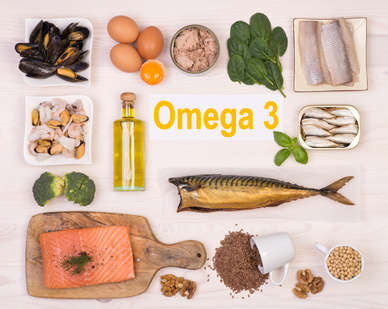 It pays off to make sure to get enough omega-3 from your diet or by taking supplements. Studies show that the content of omega-3 fatty acids in the blood are linked directly to a lower risk of developing atherosclerosis and dying of a heart attack. This was ween in a large epidemiological study that is published in the journal JAMA Internal Medicine.
It pays off to make sure to get enough omega-3 from your diet or by taking supplements. Studies show that the content of omega-3 fatty acids in the blood are linked directly to a lower risk of developing atherosclerosis and dying of a heart attack. This was ween in a large epidemiological study that is published in the journal JAMA Internal Medicine.
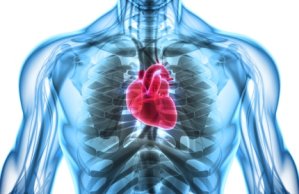 Q10 and selenium are powerful antioxidants that are important for the heart, cardiovascular system, and the energy turnover. As we grow older, our endogenous Q10 synthesis decreases, and many people lack selenium. A Swedish study has shown that older people who take supplements of Q10 and selenium have a 50 percent lower cardiovascular death rate. Another (more recent) Swedish study shows that Q10 and selenium also increase elderly peoples’ levels of IGF-1, a hormone with many functions in the body. The scientists assume that this helps reduce the risk of cardiac death among elderly people.
Q10 and selenium are powerful antioxidants that are important for the heart, cardiovascular system, and the energy turnover. As we grow older, our endogenous Q10 synthesis decreases, and many people lack selenium. A Swedish study has shown that older people who take supplements of Q10 and selenium have a 50 percent lower cardiovascular death rate. Another (more recent) Swedish study shows that Q10 and selenium also increase elderly peoples’ levels of IGF-1, a hormone with many functions in the body. The scientists assume that this helps reduce the risk of cardiac death among elderly people.
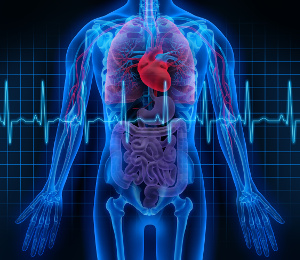 Cardiovascular diseases are widespread and one of the major causes of death. The risk is increased by factors such as ageing, diabetes, and overweight. One of the underlying causes is oxidative stress, which is an imbalance between free radicals and antioxidants. Q10, which is involved in cellular energy turnover, happens to be one of the most powerful antioxidants. According to a review article that is published in the scientific journal Antioxidants, supplementation with Q10 can reduce oxidative stress and cardiovascular mortality. It can also improve quality of life and increase the chances of survival. Generally speaking, Q10 has a huge potential for anyone with a desire to remain healthy, and it is important to choose a supplement with documented quality and bioavailability.
Cardiovascular diseases are widespread and one of the major causes of death. The risk is increased by factors such as ageing, diabetes, and overweight. One of the underlying causes is oxidative stress, which is an imbalance between free radicals and antioxidants. Q10, which is involved in cellular energy turnover, happens to be one of the most powerful antioxidants. According to a review article that is published in the scientific journal Antioxidants, supplementation with Q10 can reduce oxidative stress and cardiovascular mortality. It can also improve quality of life and increase the chances of survival. Generally speaking, Q10 has a huge potential for anyone with a desire to remain healthy, and it is important to choose a supplement with documented quality and bioavailability.

A combination of the trace element selenium and the vitamin-like compound coenzyme Q10 appears to be a highly useful treatment for people with impaired cardiac function.
- and increase your lifespan
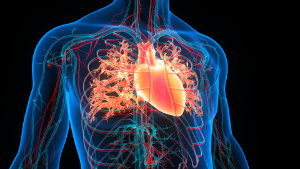 Cardiovascular diseases are the leading cause of death. However, in 2013, Professor Urban Alehagen, a Swedish cardiologist, demonstrated that giving supplements of selenium and Q10 to seniors could strengthen their hearts and reduce their cardiovascular mortality rate by over 50 percent. In follow-ups of his research, it was seen that the two supplements had a long-term effect on lifespan, but there is more to the story. In a whole new study that is published in European Journal of Nutrition, Alehagen manages to show in detail that selenium and Q10 have a positive effect on oxidative stress and inflammation at the same time as improving a number of biomarkers of heart health. He also explains why it can be a challenge to get enough Q10 and selenium through an entire life.
Cardiovascular diseases are the leading cause of death. However, in 2013, Professor Urban Alehagen, a Swedish cardiologist, demonstrated that giving supplements of selenium and Q10 to seniors could strengthen their hearts and reduce their cardiovascular mortality rate by over 50 percent. In follow-ups of his research, it was seen that the two supplements had a long-term effect on lifespan, but there is more to the story. In a whole new study that is published in European Journal of Nutrition, Alehagen manages to show in detail that selenium and Q10 have a positive effect on oxidative stress and inflammation at the same time as improving a number of biomarkers of heart health. He also explains why it can be a challenge to get enough Q10 and selenium through an entire life.
 Many women experience sleep deprivation as one of the biggest problems of menopause. Not only does this condition cause fatigue, it also increases the risk of overweight, depression, impaired immune resistance, weak bones, atherosclerosis, and dementia. It is therefore a very good idea to solve any sleeping problem with the natural substance melatonin and a few other simple adjustments.
Many women experience sleep deprivation as one of the biggest problems of menopause. Not only does this condition cause fatigue, it also increases the risk of overweight, depression, impaired immune resistance, weak bones, atherosclerosis, and dementia. It is therefore a very good idea to solve any sleeping problem with the natural substance melatonin and a few other simple adjustments.
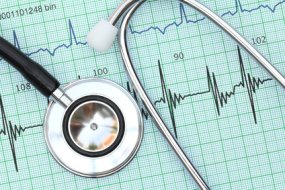 Swedish scientists wrote medical history when they discovered that supplementation with Q10 and selenium could halve a person's risk of dying from cardiovascular disease. Now, a 10-year of the Swedish study shows that taking these two supplements even has a notable long-term effect on cardiac function and lifespan.
Swedish scientists wrote medical history when they discovered that supplementation with Q10 and selenium could halve a person's risk of dying from cardiovascular disease. Now, a 10-year of the Swedish study shows that taking these two supplements even has a notable long-term effect on cardiac function and lifespan.
 Here is the formula for quality of life in seniors
Here is the formula for quality of life in seniors
Besides cutting the number cardiovascular deaths in half, elderly people who take supplements of selenium and coenzyme Q10 have better quality of life, are less prone to disease, and have more energy than those who do not take the supplements.
- and the huge difference between the omega-3 forms ALA, EPA, and DHA
 Most people lack omega-3 fatty acids that are vital for the brain, the nervous system, and the cardiovascular system. Omega-3 fatty acids also have anti-inflammatory and cancer-fighting properties. It is important to consume omega-3 and omega-6 fatty acids in the right balance in order to benefit from their many health effects. But how do we make sure to get enough omega-3 fatty acids that we can utilize? And what is the difference between ALA, EPA, and DHA?
Most people lack omega-3 fatty acids that are vital for the brain, the nervous system, and the cardiovascular system. Omega-3 fatty acids also have anti-inflammatory and cancer-fighting properties. It is important to consume omega-3 and omega-6 fatty acids in the right balance in order to benefit from their many health effects. But how do we make sure to get enough omega-3 fatty acids that we can utilize? And what is the difference between ALA, EPA, and DHA?
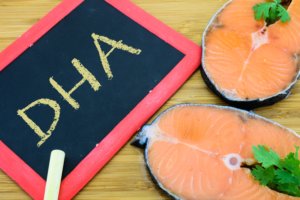 It is commonly known that fish oil with its high content of the two omega-3 fatty acids EPA and DHA helps prevent atherosclerosis. According to a new international study, it appears to be DHA that has the major effect. This new insight, which has surprised the scientists, is relevant to public health because cardiovascular disease continues to be the leading cause of death.
It is commonly known that fish oil with its high content of the two omega-3 fatty acids EPA and DHA helps prevent atherosclerosis. According to a new international study, it appears to be DHA that has the major effect. This new insight, which has surprised the scientists, is relevant to public health because cardiovascular disease continues to be the leading cause of death.
Although there are two for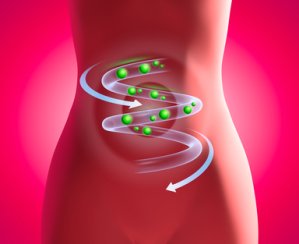 ms of coenzyme Q10 in the body - ubiquinone and ubiquinol - only one of them is able to document an effect. This was recently ascertained by one of the leading Q10 researchers in the world.
ms of coenzyme Q10 in the body - ubiquinone and ubiquinol - only one of them is able to document an effect. This was recently ascertained by one of the leading Q10 researchers in the world.
 Lack of vitamin E increases your risk of fertility problems, atherosclerosis, blood clots, and Alzheimer's disease. The diet contains eight different forms of vitamin E. The vitamin is also available in supplement form, either as natural or synthetic vitamin E, and there are huge differences in terms of their effect.
Lack of vitamin E increases your risk of fertility problems, atherosclerosis, blood clots, and Alzheimer's disease. The diet contains eight different forms of vitamin E. The vitamin is also available in supplement form, either as natural or synthetic vitamin E, and there are huge differences in terms of their effect.
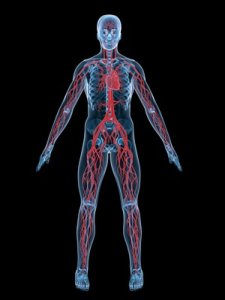 Lack of vitamin K2 increases your risk of stiff arteries and atherosclerosis, which is the leading cause of death worldwide. This was observed in two new studies, one that is published in the American Journal of Hypertension, the other in the journal Nephron. A third study that is published in Clinical Nutrition reveals that daily supplementation with vitamin K2 lowers the risk of early death caused by cardiovascular disease. Our diet used to provide substantially more vitamin K2 from fermented foods than now, and this type of food deserves a comeback. It is also important to know the difference between vitamin K1 and vitamin K2.
Lack of vitamin K2 increases your risk of stiff arteries and atherosclerosis, which is the leading cause of death worldwide. This was observed in two new studies, one that is published in the American Journal of Hypertension, the other in the journal Nephron. A third study that is published in Clinical Nutrition reveals that daily supplementation with vitamin K2 lowers the risk of early death caused by cardiovascular disease. Our diet used to provide substantially more vitamin K2 from fermented foods than now, and this type of food deserves a comeback. It is also important to know the difference between vitamin K1 and vitamin K2.
 Vitamin K2 clears calcium from the bloodstream and embeds it in bone tissue. Therefore, vitamin K2 is of vital importance to bone building and the prevention of atherosclerosis. Medical News Bulletin has placed even more focus on vitamin K2’s role in maintaining strong bones and reducing the risk of a fracture. The question is, how much vitamin K2 do we really need for optimal bone health, and why is it important to know the difference between vitamin K1 and vitamin K2?
Vitamin K2 clears calcium from the bloodstream and embeds it in bone tissue. Therefore, vitamin K2 is of vital importance to bone building and the prevention of atherosclerosis. Medical News Bulletin has placed even more focus on vitamin K2’s role in maintaining strong bones and reducing the risk of a fracture. The question is, how much vitamin K2 do we really need for optimal bone health, and why is it important to know the difference between vitamin K1 and vitamin K2?
 A new Chinese study that is published in the science journal, Heart, shows that eating an egg every day can lower your risk of stroke by 26 percent. The reason is that eggs contain selenium and other powerful antioxidants that protect against atherosclerosis, and we do not get all that much selenium from our diets. Therefore, forget all about the cholesterol scare and warnings against eating eggs. That dietary advice is outdated and has done more harm than good.
A new Chinese study that is published in the science journal, Heart, shows that eating an egg every day can lower your risk of stroke by 26 percent. The reason is that eggs contain selenium and other powerful antioxidants that protect against atherosclerosis, and we do not get all that much selenium from our diets. Therefore, forget all about the cholesterol scare and warnings against eating eggs. That dietary advice is outdated and has done more harm than good.







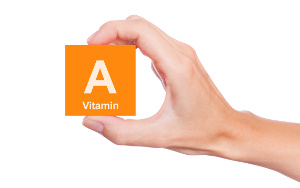
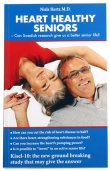

 It is widely established that women of childbearing age have high levels of estrogen that protect them against cardiovascular disease. However, if they have type 1 diabetes, having high estrogen levels actually increases their risk of these diseases. A group of scientists is therefore planning to investigate whether nutritional supplements with antioxidants can protect diabetics against cardiovascular disease and the premature death caused by these ailments.
It is widely established that women of childbearing age have high levels of estrogen that protect them against cardiovascular disease. However, if they have type 1 diabetes, having high estrogen levels actually increases their risk of these diseases. A group of scientists is therefore planning to investigate whether nutritional supplements with antioxidants can protect diabetics against cardiovascular disease and the premature death caused by these ailments. There is a clear link between magnesium intake and the risk of heart diseases and sudden cardiac death in postmenopausal women, according to a study that is published in Journal of Women’s Health. Unfortunately, many women are not diagnosed with heart disease at a sufficiently early stage. It is also a fact that many postmenopausal women take calcium supplements for bone health. However, if they also lack magnesium, which is responsible for the calcium distribution in the body, the calcium supplements may instead increase the risk of coronary atherosclerosis. According to new and earlier research, we must focus a lot more on telling women how important it is to get enough magnesium at all stages of life – not least after menopause.
There is a clear link between magnesium intake and the risk of heart diseases and sudden cardiac death in postmenopausal women, according to a study that is published in Journal of Women’s Health. Unfortunately, many women are not diagnosed with heart disease at a sufficiently early stage. It is also a fact that many postmenopausal women take calcium supplements for bone health. However, if they also lack magnesium, which is responsible for the calcium distribution in the body, the calcium supplements may instead increase the risk of coronary atherosclerosis. According to new and earlier research, we must focus a lot more on telling women how important it is to get enough magnesium at all stages of life – not least after menopause. Seniors have an increased risk of cardiovascular disease, which is the leading cause of death. It is commonly known that diet plays a key role in preventing these diseases, and a team of scientists therefore decided to look closer at zinc because of this nutrient’s many functions in the heart and cardiovascular system. The scientists found that older people often lack zinc for different reasons. Therefore, the dietary guidelines for zinc in old age should be reconsidered with regard to cardiovascular health and other zinc-dependent functions.
Seniors have an increased risk of cardiovascular disease, which is the leading cause of death. It is commonly known that diet plays a key role in preventing these diseases, and a team of scientists therefore decided to look closer at zinc because of this nutrient’s many functions in the heart and cardiovascular system. The scientists found that older people often lack zinc for different reasons. Therefore, the dietary guidelines for zinc in old age should be reconsidered with regard to cardiovascular health and other zinc-dependent functions. Atherosclerosis is one of the leading causes of death in the Western world, and the heart is particularly vulnerable. According to a study from the University of Birmingham, Alabama (USA), foods that are rich in potassium such as bananas, potatoes, avocado, and almonds protect against this disease, which takes years to develop. Beware that too much salt and the use of diuretics may deplete the body’s potassium stores.
Atherosclerosis is one of the leading causes of death in the Western world, and the heart is particularly vulnerable. According to a study from the University of Birmingham, Alabama (USA), foods that are rich in potassium such as bananas, potatoes, avocado, and almonds protect against this disease, which takes years to develop. Beware that too much salt and the use of diuretics may deplete the body’s potassium stores. A new study shows that adding eggs to your mixed salad increases the uptake of vitamin E from the vegetables, so don’t let your fear of fat and cholesterol keep you from consuming eggs. Eggs (yoke and white) contain a multitude of nutrients that are beneficial for your cardiovascular system and blood sugar.
A new study shows that adding eggs to your mixed salad increases the uptake of vitamin E from the vegetables, so don’t let your fear of fat and cholesterol keep you from consuming eggs. Eggs (yoke and white) contain a multitude of nutrients that are beneficial for your cardiovascular system and blood sugar. Heart failure is a disease with a variety of different symptoms and a high mortality rate because the heart’s pumping function is impaired. Heart failure is also characterized by chronic inflammation that worsens the prognosis. Apparently, fish oil supplementation can reduce chronic inflammation, according to a meta-analysis that is published in Heart Failure Reviews. In fact, eating more omega-3 fatty acids from fish and different plant sources can improve survival in heart failure.
Heart failure is a disease with a variety of different symptoms and a high mortality rate because the heart’s pumping function is impaired. Heart failure is also characterized by chronic inflammation that worsens the prognosis. Apparently, fish oil supplementation can reduce chronic inflammation, according to a meta-analysis that is published in Heart Failure Reviews. In fact, eating more omega-3 fatty acids from fish and different plant sources can improve survival in heart failure. The plant extract Ginkgo biloba contains some biologically active compounds that improve circulation through blood-thinning and vessel-dilating actions. However, a study of 29 different Ginkgo biloba preparations revealed that only 10% of the investigated products actually contained Ginkgo extract. You can avoid this problem by only using Ginkgo biloba in the form of natural remedies, because they are registered as pharmaceutical drugs.
The plant extract Ginkgo biloba contains some biologically active compounds that improve circulation through blood-thinning and vessel-dilating actions. However, a study of 29 different Ginkgo biloba preparations revealed that only 10% of the investigated products actually contained Ginkgo extract. You can avoid this problem by only using Ginkgo biloba in the form of natural remedies, because they are registered as pharmaceutical drugs. Cardiovascular disease is the leading cause of death worldwide, and our diet and lifestyle play a major role. According to an Australian study published in British Medical Journal, high-dosed vitamin D supplementation taken for several years lowers the risk of heart attacks or interventions such as angioplasty and by-pass surgery in people aged 60 years and older.
Cardiovascular disease is the leading cause of death worldwide, and our diet and lifestyle play a major role. According to an Australian study published in British Medical Journal, high-dosed vitamin D supplementation taken for several years lowers the risk of heart attacks or interventions such as angioplasty and by-pass surgery in people aged 60 years and older. There is widespread potassium deficiency, and it is common knowledge that an increased potassium intake lowers the risk of hypertension, which is the leading cause of stroke, cardiovascular disease, and early death. However, not many people know that potassium has a vital impact on blood sugar levels and the prevention of diabetes, just as it counteracts side effects of diuretics. The question is how much potassium do we need – and how does the balance between potassium and sodium (salt) affect our health?
There is widespread potassium deficiency, and it is common knowledge that an increased potassium intake lowers the risk of hypertension, which is the leading cause of stroke, cardiovascular disease, and early death. However, not many people know that potassium has a vital impact on blood sugar levels and the prevention of diabetes, just as it counteracts side effects of diuretics. The question is how much potassium do we need – and how does the balance between potassium and sodium (salt) affect our health? Medical science has claimed for decades that elevated cholesterol levels pose a health threat, especially if you have too much of the so-called “bad” cholesterol – or LDL (Low-Density Lipoprotein). However, a team of international experts is now arguing that this theory is exaggerated. In fact, the experts specifically advise against taking cholesterol-lowering statins. Meanwhile, science is focused on how to improve the safety of statins by combining them with supplements of coenzyme Q10.
Medical science has claimed for decades that elevated cholesterol levels pose a health threat, especially if you have too much of the so-called “bad” cholesterol – or LDL (Low-Density Lipoprotein). However, a team of international experts is now arguing that this theory is exaggerated. In fact, the experts specifically advise against taking cholesterol-lowering statins. Meanwhile, science is focused on how to improve the safety of statins by combining them with supplements of coenzyme Q10. Vitamin K is primarily for its role in helping blood coagulate. Otherwise, the vitamin is heavily underrated. For instance, the bones depend on vitamin K, and those people who consume the greatest amounts of vitamin K have the lowest risk of cardiovascular disease, atherosclerosis, and blood clots. It is important to know the difference between vitamin K1 and K2 and to know how well they get absorbed in the body.
Vitamin K is primarily for its role in helping blood coagulate. Otherwise, the vitamin is heavily underrated. For instance, the bones depend on vitamin K, and those people who consume the greatest amounts of vitamin K have the lowest risk of cardiovascular disease, atherosclerosis, and blood clots. It is important to know the difference between vitamin K1 and K2 and to know how well they get absorbed in the body. In a matter of four months only, large doses of vitamin D were able to reduce arterial stiffness in young, overweight but otherwise healthy Afro-Americans, according to a study from Georgia, the United States. The study also showed that those participants, who only took the officially recommended quantities of vitamin D, had increased arterial stiffness. This suggests that the official vitamin D recommendations are too low to prevent stiff arteries and atherosclerosis. Another thing is that dark-skinned people living at northern latitudes, overweight individuals, older people diabetics, and those who overuse sun screen are at increased risk of synthesizing too little vitamin D.
In a matter of four months only, large doses of vitamin D were able to reduce arterial stiffness in young, overweight but otherwise healthy Afro-Americans, according to a study from Georgia, the United States. The study also showed that those participants, who only took the officially recommended quantities of vitamin D, had increased arterial stiffness. This suggests that the official vitamin D recommendations are too low to prevent stiff arteries and atherosclerosis. Another thing is that dark-skinned people living at northern latitudes, overweight individuals, older people diabetics, and those who overuse sun screen are at increased risk of synthesizing too little vitamin D. It is essential that your heart is able to pump optimally throughout life. A study from Medical College of Georgia, Augusta University, the United States, has just shown that a diet with low levels of vitamin K1 from dark, leafy greens increases your risk of an unhealthy enlargement of the heart’s left ventricle that pumps the oxygenated blood to the aorta (the body’s largest artery). The scientists even observed this enlargement in teenagers. Vitamin K1 is primarily known for its role in the blood coagulation process, but it is also converted to vitamin K2 in our gut flora. In fact, it is vitamin K2 that is important for the heart and cardiovascular system.
It is essential that your heart is able to pump optimally throughout life. A study from Medical College of Georgia, Augusta University, the United States, has just shown that a diet with low levels of vitamin K1 from dark, leafy greens increases your risk of an unhealthy enlargement of the heart’s left ventricle that pumps the oxygenated blood to the aorta (the body’s largest artery). The scientists even observed this enlargement in teenagers. Vitamin K1 is primarily known for its role in the blood coagulation process, but it is also converted to vitamin K2 in our gut flora. In fact, it is vitamin K2 that is important for the heart and cardiovascular system. Heart failure is when the heart loses power and is no longer able to deliver blood to the different parts of the body. Typical symptoms are shortness of breath and physical exhaustion. There may also be symptoms like fluid retention, persistent coughing, chest tightness, increased sweating, or cold sensitivity. Chronic heart failure may be caused by different things, and it is a life-threatening condition. However, according to a study that is published in Journal of Clinical Investigation, magnesium supplementation can improve a type of heart failure called diastolic dysfunction. Previous studies have demonstrated that supplements of Q10 can also improve cardiac function in patients with heart failure.
Heart failure is when the heart loses power and is no longer able to deliver blood to the different parts of the body. Typical symptoms are shortness of breath and physical exhaustion. There may also be symptoms like fluid retention, persistent coughing, chest tightness, increased sweating, or cold sensitivity. Chronic heart failure may be caused by different things, and it is a life-threatening condition. However, according to a study that is published in Journal of Clinical Investigation, magnesium supplementation can improve a type of heart failure called diastolic dysfunction. Previous studies have demonstrated that supplements of Q10 can also improve cardiac function in patients with heart failure.

 Eat plenty of oily fish from clean oceans or take a fish oil supplement to make sure that you get enough of the essential omega-3 fatty acids. It lowers your risk of premature death by protecting you against atherosclerosis and a number of other diseases. In fact, blood levels of omega-3 tell a lot more than levels of cholesterol, according to a new study that is published in Journal of Clinical Lipidology.
Eat plenty of oily fish from clean oceans or take a fish oil supplement to make sure that you get enough of the essential omega-3 fatty acids. It lowers your risk of premature death by protecting you against atherosclerosis and a number of other diseases. In fact, blood levels of omega-3 tell a lot more than levels of cholesterol, according to a new study that is published in Journal of Clinical Lipidology. It pays off to make sure to get enough omega-3 from your diet or by taking supplements. Studies show that the content of omega-3 fatty acids in the blood are linked directly to a lower risk of developing atherosclerosis and dying of a heart attack. This was ween in a large epidemiological study that is published in the journal JAMA Internal Medicine.
It pays off to make sure to get enough omega-3 from your diet or by taking supplements. Studies show that the content of omega-3 fatty acids in the blood are linked directly to a lower risk of developing atherosclerosis and dying of a heart attack. This was ween in a large epidemiological study that is published in the journal JAMA Internal Medicine. Q10 and selenium are powerful antioxidants that are important for the heart, cardiovascular system, and the energy turnover. As we grow older, our endogenous Q10 synthesis decreases, and many people lack selenium. A Swedish study has shown that older people who take supplements of Q10 and selenium have a 50 percent lower cardiovascular death rate. Another (more recent) Swedish study shows that Q10 and selenium also increase elderly peoples’ levels of IGF-1, a hormone with many functions in the body. The scientists assume that this helps reduce the risk of cardiac death among elderly people.
Q10 and selenium are powerful antioxidants that are important for the heart, cardiovascular system, and the energy turnover. As we grow older, our endogenous Q10 synthesis decreases, and many people lack selenium. A Swedish study has shown that older people who take supplements of Q10 and selenium have a 50 percent lower cardiovascular death rate. Another (more recent) Swedish study shows that Q10 and selenium also increase elderly peoples’ levels of IGF-1, a hormone with many functions in the body. The scientists assume that this helps reduce the risk of cardiac death among elderly people. Cardiovascular diseases are widespread and one of the major causes of death. The risk is increased by factors such as ageing, diabetes, and overweight. One of the underlying causes is oxidative stress, which is an imbalance between free radicals and antioxidants. Q10, which is involved in cellular energy turnover, happens to be one of the most powerful antioxidants. According to a review article that is published in the scientific journal Antioxidants, supplementation with Q10 can reduce oxidative stress and cardiovascular mortality. It can also improve quality of life and increase the chances of survival. Generally speaking, Q10 has a huge potential for anyone with a desire to remain healthy, and it is important to choose a supplement with documented quality and bioavailability.
Cardiovascular diseases are widespread and one of the major causes of death. The risk is increased by factors such as ageing, diabetes, and overweight. One of the underlying causes is oxidative stress, which is an imbalance between free radicals and antioxidants. Q10, which is involved in cellular energy turnover, happens to be one of the most powerful antioxidants. According to a review article that is published in the scientific journal Antioxidants, supplementation with Q10 can reduce oxidative stress and cardiovascular mortality. It can also improve quality of life and increase the chances of survival. Generally speaking, Q10 has a huge potential for anyone with a desire to remain healthy, and it is important to choose a supplement with documented quality and bioavailability.
 Cardiovascular diseases are the leading cause of death. However, in 2013, Professor Urban Alehagen, a Swedish cardiologist, demonstrated that giving supplements of selenium and Q10 to seniors could strengthen their hearts and reduce their cardiovascular mortality rate by over 50 percent. In follow-ups of his research, it was seen that the two supplements had a long-term effect on lifespan, but there is more to the story. In a whole new study that is published in European Journal of Nutrition, Alehagen manages to show in detail that selenium and Q10 have a positive effect on oxidative stress and inflammation at the same time as improving a number of biomarkers of heart health. He also explains why it can be a challenge to get enough Q10 and selenium through an entire life.
Cardiovascular diseases are the leading cause of death. However, in 2013, Professor Urban Alehagen, a Swedish cardiologist, demonstrated that giving supplements of selenium and Q10 to seniors could strengthen their hearts and reduce their cardiovascular mortality rate by over 50 percent. In follow-ups of his research, it was seen that the two supplements had a long-term effect on lifespan, but there is more to the story. In a whole new study that is published in European Journal of Nutrition, Alehagen manages to show in detail that selenium and Q10 have a positive effect on oxidative stress and inflammation at the same time as improving a number of biomarkers of heart health. He also explains why it can be a challenge to get enough Q10 and selenium through an entire life. Many women experience sleep deprivation as one of the biggest problems of menopause. Not only does this condition cause fatigue, it also increases the risk of overweight, depression, impaired immune resistance, weak bones, atherosclerosis, and dementia. It is therefore a very good idea to solve any sleeping problem with the natural substance melatonin and a few other simple adjustments.
Many women experience sleep deprivation as one of the biggest problems of menopause. Not only does this condition cause fatigue, it also increases the risk of overweight, depression, impaired immune resistance, weak bones, atherosclerosis, and dementia. It is therefore a very good idea to solve any sleeping problem with the natural substance melatonin and a few other simple adjustments. Swedish scientists wrote medical history when they discovered that supplementation with Q10 and selenium could halve a person's risk of dying from cardiovascular disease. Now, a 10-year of the Swedish study shows that taking these two supplements even has a notable long-term effect on cardiac function and lifespan.
Swedish scientists wrote medical history when they discovered that supplementation with Q10 and selenium could halve a person's risk of dying from cardiovascular disease. Now, a 10-year of the Swedish study shows that taking these two supplements even has a notable long-term effect on cardiac function and lifespan.
 Most people lack omega-3 fatty acids that are vital for the brain, the nervous system, and the cardiovascular system. Omega-3 fatty acids also have anti-inflammatory and cancer-fighting properties. It is important to consume omega-3 and omega-6 fatty acids in the right balance in order to benefit from their many health effects. But how do we make sure to get enough omega-3 fatty acids that we can utilize? And what is the difference between ALA, EPA, and DHA?
Most people lack omega-3 fatty acids that are vital for the brain, the nervous system, and the cardiovascular system. Omega-3 fatty acids also have anti-inflammatory and cancer-fighting properties. It is important to consume omega-3 and omega-6 fatty acids in the right balance in order to benefit from their many health effects. But how do we make sure to get enough omega-3 fatty acids that we can utilize? And what is the difference between ALA, EPA, and DHA? It is commonly known that fish oil with its high content of the two omega-3 fatty acids EPA and DHA helps prevent atherosclerosis. According to a new international study, it appears to be DHA that has the major effect. This new insight, which has surprised the scientists, is relevant to public health because cardiovascular disease continues to be the leading cause of death.
It is commonly known that fish oil with its high content of the two omega-3 fatty acids EPA and DHA helps prevent atherosclerosis. According to a new international study, it appears to be DHA that has the major effect. This new insight, which has surprised the scientists, is relevant to public health because cardiovascular disease continues to be the leading cause of death. ms of coenzyme Q10 in the body - ubiquinone and ubiquinol - only one of them is able to document an effect. This was recently ascertained by one of the leading Q10 researchers in the world.
ms of coenzyme Q10 in the body - ubiquinone and ubiquinol - only one of them is able to document an effect. This was recently ascertained by one of the leading Q10 researchers in the world. Lack of vitamin E increases your risk of fertility problems, atherosclerosis, blood clots, and Alzheimer's disease. The diet contains eight different forms of vitamin E. The vitamin is also available in supplement form, either as natural or synthetic vitamin E, and there are huge differences in terms of their effect.
Lack of vitamin E increases your risk of fertility problems, atherosclerosis, blood clots, and Alzheimer's disease. The diet contains eight different forms of vitamin E. The vitamin is also available in supplement form, either as natural or synthetic vitamin E, and there are huge differences in terms of their effect. Lack of vitamin K2 increases your risk of stiff arteries and atherosclerosis, which is the leading cause of death worldwide. This was observed in two new studies, one that is published in the American Journal of Hypertension, the other in the journal Nephron. A third study that is published in Clinical Nutrition reveals that daily supplementation with vitamin K2 lowers the risk of early death caused by cardiovascular disease. Our diet used to provide substantially more vitamin K2 from fermented foods than now, and this type of food deserves a comeback. It is also important to know the difference between vitamin K1 and vitamin K2.
Lack of vitamin K2 increases your risk of stiff arteries and atherosclerosis, which is the leading cause of death worldwide. This was observed in two new studies, one that is published in the American Journal of Hypertension, the other in the journal Nephron. A third study that is published in Clinical Nutrition reveals that daily supplementation with vitamin K2 lowers the risk of early death caused by cardiovascular disease. Our diet used to provide substantially more vitamin K2 from fermented foods than now, and this type of food deserves a comeback. It is also important to know the difference between vitamin K1 and vitamin K2. Vitamin K2 clears calcium from the bloodstream and embeds it in bone tissue. Therefore, vitamin K2 is of vital importance to bone building and the prevention of atherosclerosis. Medical News Bulletin has placed even more focus on vitamin K2’s role in maintaining strong bones and reducing the risk of a fracture. The question is, how much vitamin K2 do we really need for optimal bone health, and why is it important to know the difference between vitamin K1 and vitamin K2?
Vitamin K2 clears calcium from the bloodstream and embeds it in bone tissue. Therefore, vitamin K2 is of vital importance to bone building and the prevention of atherosclerosis. Medical News Bulletin has placed even more focus on vitamin K2’s role in maintaining strong bones and reducing the risk of a fracture. The question is, how much vitamin K2 do we really need for optimal bone health, and why is it important to know the difference between vitamin K1 and vitamin K2? "After about one week of taking the Q10 supplement I could feel a huge difference," says 23-year old Alan Piccini, who has been suffering from extreme fatigue and muscle aches ever since he was a child.
"After about one week of taking the Q10 supplement I could feel a huge difference," says 23-year old Alan Piccini, who has been suffering from extreme fatigue and muscle aches ever since he was a child. “Taking capsules with co-enzyme Q10 has freed me of the severe side effects of my cholesterol lowering medicine,” Mrs Franken explains.
“Taking capsules with co-enzyme Q10 has freed me of the severe side effects of my cholesterol lowering medicine,” Mrs Franken explains.